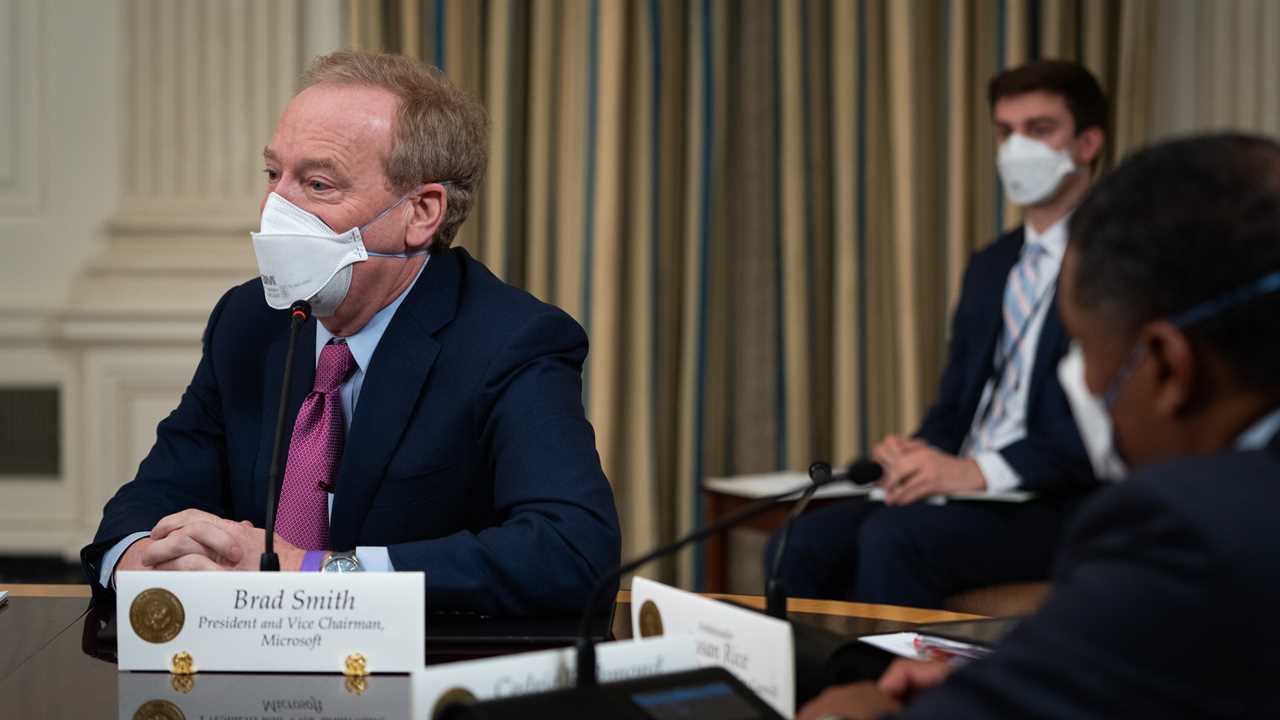
Microsoft on Wednesday kicked off a charm offensive in Washington to gain government approval for its $70 billion deal to buy the video game company Activision Blizzard, saying it would not give preferential treatment to its own games in its app stores.
Satya Nadella, Microsoft’s chief executive, and Brad Smith, its president, said at a news conference in Washington that they planned to meet officials to discuss the deal. Mr. Smith said he had been “sharing where we’re going with members of Congress” and that the company had been “meeting with people in the think tank community and the like.”
Regulators are expected to give Microsoft’s proposed acquisition of Activision — the largest in Microsoft’s history — a tough review. The deal would combine Activision, which has games like Call of Duty and World of Warcraft, with Microsoft’s Xbox operation, which publishes hits like Halo and makes consoles and gaming subscription services.
To get ahead of that scrutiny, Microsoft executives brought a list of promises.
“We are proposing to write the biggest check in the history of Microsoft for $68 billion and will only be permitted to write that check if 17 governments around the world approve that transaction,” Mr. Smith said. “We want to be clear with regulators and with the public that if this acquisition is approved, they can count on Microsoft to adapt to the rules that are emerging.”
Mr. Smith and Mr. Nadella said they would commit to loosening restrictions on how other developers can gain access to Microsoft’s app stores. They said they would also not force other developers to take payments from users using Microsoft’s systems, would allow game developers to talk directly to players and not promote the company’s own games over rival products.
They acknowledged the steep challenge of getting their blockbuster deal approved in a time of increased scrutiny of big tech companies from the Biden administration. Lina Khan, the chair of the Federal Trade Commission, is a critic of tech giants like Amazon and Meta, the parent company of Facebook.
Under her, the agency sued to block chip maker Nvidia’s acquisition of Arm and she has promised to be more aggressive in scrutinizing more mergers and acquisitions. She began a process to toughen standards on so-called vertical mergers, which could include Microsoft’s bid for Activision, a combination of two companies along a supply chain.
Microsoft may also face challenges abroad. Regulators in Britain and the European Union have been even more aggressive in filing antitrust lawsuits against the tech giants or moving to block their acquisitions.
Microsoft has said Activision will help it compete in the nascent business of the so-called metaverse, or virtual worlds where some tech companies believe people could work and play.
Mr. Nadella said the main message was that Microsoft would not dominate gaming if the merger was approved. The company would become the third largest provider of video games with about 13 percent of the market, he said.
“In traditional times, being the number three in a highly fragmented market wouldn’t be that interesting to anyone,” Mr. Nadella said.
Mr. Smith said Microsoft had expressed support for antitrust legislation to show members of Congress that the company would not fight what it viewed as inevitable regulations.
“We are not in the world of 2018 and 2019,” he said. “We recognize there will be more scrutiny of any large accusations made by a large tech company. It behooves us to move quickly and transparently and be clear on how we manage this.”






